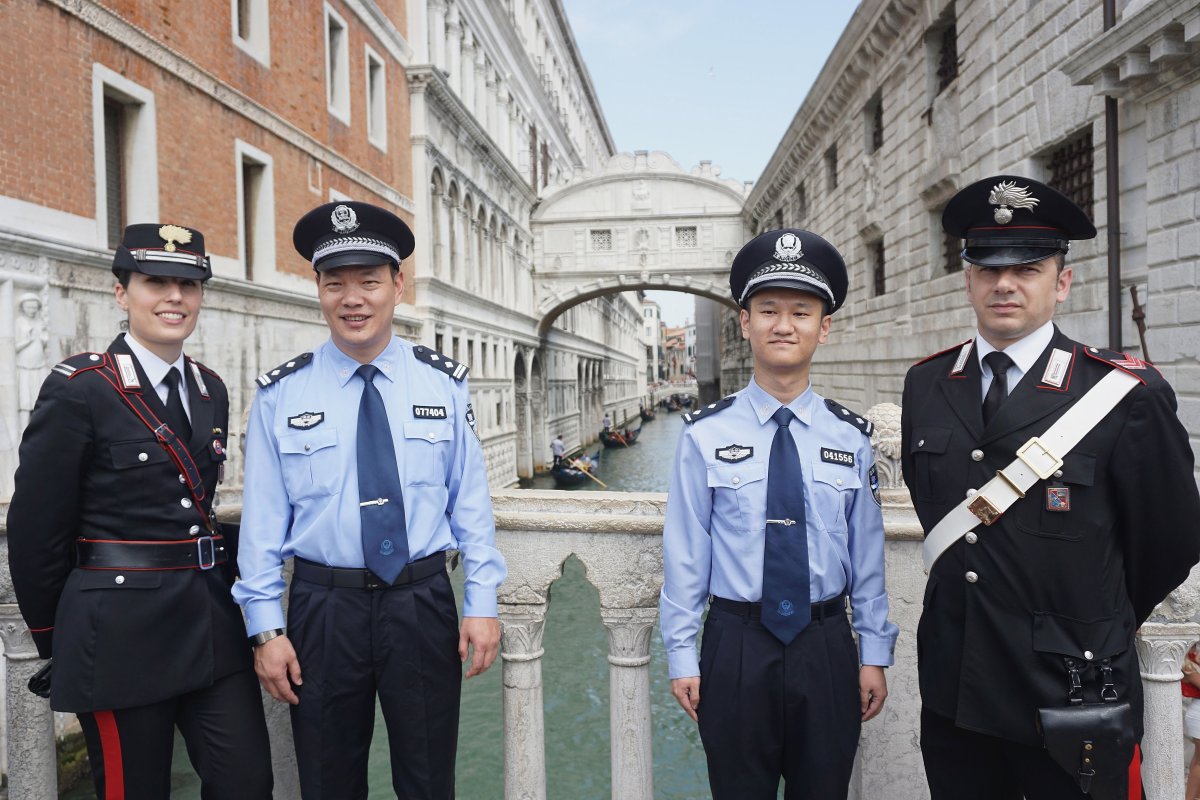As the U.S. and at least a dozen other nations are scrambling to investigate reports of China setting up "police stations" abroad, some countries have actively encouraged the Chinese police ties, a new report from a human rights organization said.
The report from Safeguard Defenders said it had identified more than 100 centers run by Chinese police around the world, echoing some details in a recent Newsweek investigation into the spread of a network in the U.S. and elsewhere that could be used by Xi Jinping's China for surveillance and harassment of its opponents - and could gain new importance as China seeks to quell rare protests over its "Zero COVID" policy.
China's foreign ministry has said that it is wrong to call the locations "police stations" and that they are merely providing administrative services such as documentation renewal for overseas Chinese.
Safeguard Defenders said in its new report, "Patrol and Persuade" that Chinese police service centers had been established in over 50 countries. The "police stations" are normally housed in a sprawling network of overseas Chinese associations around the world.
Set up by local branches of China's Public Security Bureau, including at the lowest administrative levels of government such as "neighborhood committees," the true number likely outstrips Safeguard Defenders' tally - and the number reported is expected to rise as more are discovered.
Newsweek has identified additional locations in the U.S. that house liaison points for both Chinese police and law courts.
FBI Director Christopher Wray has said he is "very concerned" by reports of secret police stations in the U.S., but the Safeguard Defenders research, following on from a report in September called "110 Overseas - Chinese Transnational Policing Gone Wild", said some countries had encouraged the Chinese police.
Madrid-based Safeguard Defenders highlighted police centers it said had been set up overseas by Chinese local jurisdictions that included the cities of Nantong, Wenzhou and Fuzhou as well as Qingtian County.

The group said it had found "extensive and early police presence in Italy in different forms including patrols by uniformed Chinese police in some locations and the establishment of 'police stations' - apparently with the support of the Italian authorities in Naples, Milan and elsewhere."
Newsweek contacted Chinese and Italian foreign ministries for comment.
Safeguard Defenders draws heavily on Chinese official sources themselves and said the Nantong Public Security Bureau had announced it had agreements of different kinds with police in Romania, South Africa, Zambia, Angola and Cambodia, including sending overseas security patrol teams to "carry out field research and security guidance."
"Persuasion to return"
The NGO said some police centers had been directly involved in "persuading" people whom they accuse of crimes, in order to get them to go back to China and face justice.
"New information shows at least one illegal "persuasion to return" operation run through the Wenzhou station in Paris, France; and at least 80 cases where the Nantong overseas police system assisted in the capture and/or persuasion to return operation," Safeguard Defenders said, referring to a Chinese phrase to describe sometimes vigilante-style operations overseas which have led to thousands of Chinese being returned home to face an uncertain future.
The return operations were in addition to similar activities the group said it had already exposed by the People's Republic of China in Spain and Serbia.
"This contradicts PRC authorities' statements that the stations are merely providing administrative services," Safeguard Defenders said.
Most of the newly documented stations had been set up starting in 2016 by Nantong and Wenzhou, Safeguard Defenders said, referring to Nantong in Jiangsu province and Wenzhou in Zhejiang province. Both provinces border on Shanghai in eastern China.
The fact that they had been set up in 2016 refuted Chinese statements that liaison centers had been set up during the COVID pandemic to help citizens abroad, the group said.
China has rejected any allegations of illegal activity by its law enforcement overseas. In November, its Foreign Ministry Spokesperson Zhao Lijian said that according to the ministry's understanding they were not "police stations" or "police service centers."
"They assist overseas Chinese nationals who need help in accessing the online service platform to get their driving licenses renewed and receive physical check-ups for that purpose," Zhao said.
"The venues are provided by local overseas Chinese communities who would like to be helpful, and the people who work on those sites are all volunteers who come from these communities. They are not police personnel from China. There is no need to make people nervous about this," he said in a November 2 briefing in Beijing.
Others see it differently and say the Chinese police activity directly violates legal agreements that underpin the post-1945 world order as it is enshrined in the United Nations.
"The People's Republic of China appears to think that it can use its law enforcement and judiciary extra-territorially, outside of bilateral agreements and the rule based international order to watch over their own citizens or citizens of other countries," said Nathalie Vogel, an analyst of hostile influence operations at the European Values Center in Prague, Czech Republic.
"These measures are violating the sovereignty and interfere with the domestic policies of third countries. It is a paradox for a country that frequently champions the principle of 'non-interference' at the U.N.," Vogel said.
Uncommon Knowledge
Newsweek is committed to challenging conventional wisdom and finding connections in the search for common ground.
Newsweek is committed to challenging conventional wisdom and finding connections in the search for common ground.
About the writer
To read how Newsweek uses AI as a newsroom tool, Click here.








